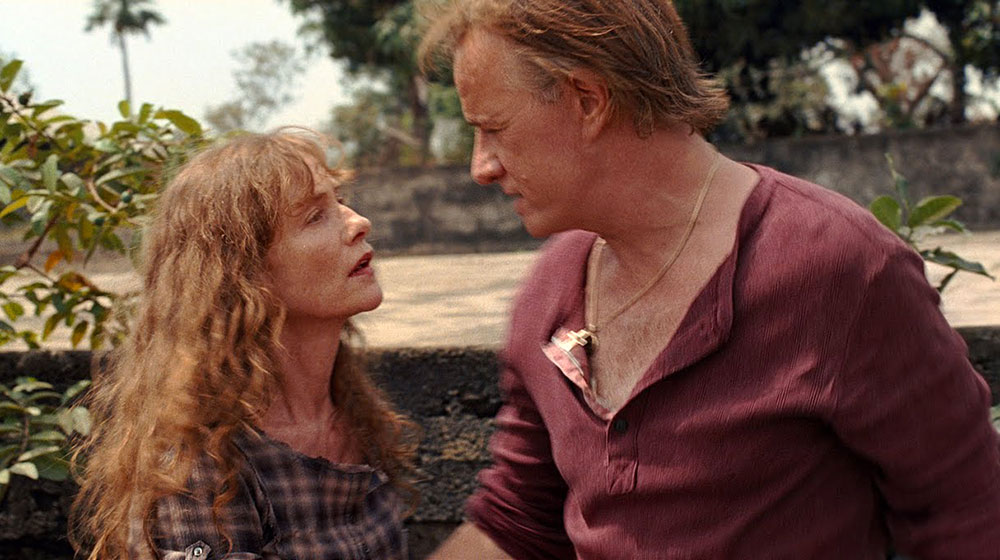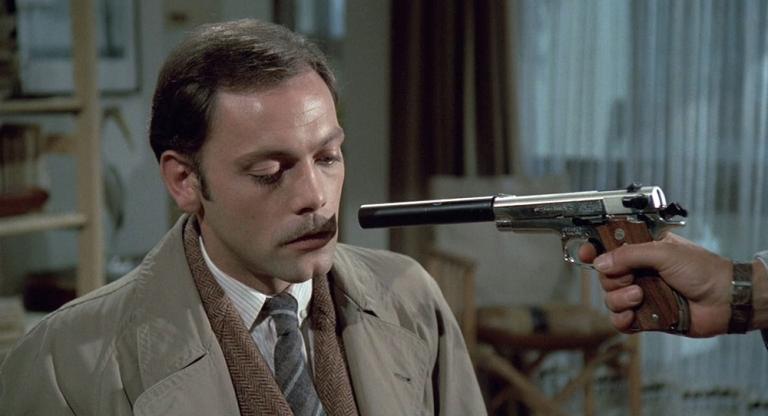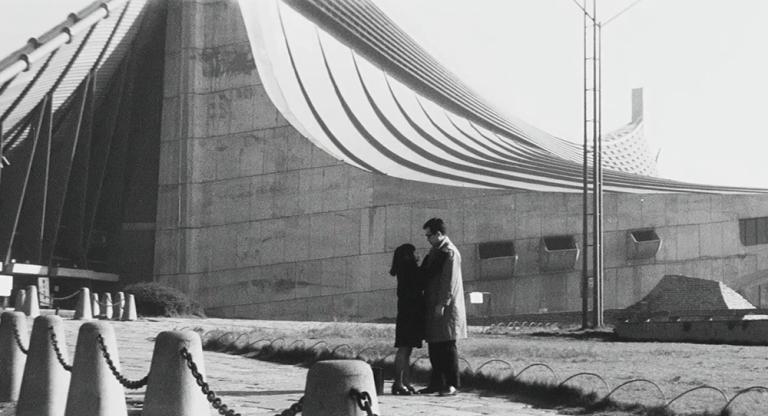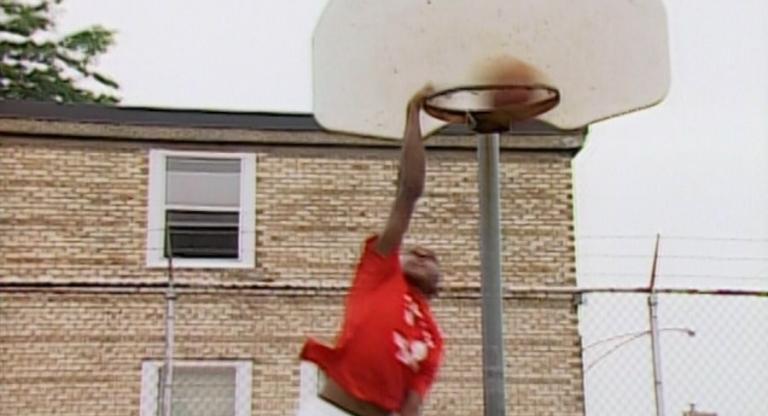Much has been written about the specter of the postcolony in Claire Denis’s films, especially in Chocolat (1988), Beau Travail (1999), and White Material (2009), which constitute IFC Center’s “Three by Denis” series. Denis’s personal background—born to a French colonial administrator father and growing up in Cameroon, Somalia, Djibouti, Burkina Faso, and Senegal—clearly figures into this preoccupation with the fraught dynamic between the colonizer and the colonized. In Chocolat, we follow a seven-year-old white girl in French Cameroon; in Beau Travail, a multiethnic cohort of Foreign Legionnaires training in Djibouti; and in White Material, a white family trying to run a coffee plantation in an unnamed African country wracked by civil war (the film was shot in Cameroon). These films are part of a tradition of white artists exploiting the turbulent relationships between their respective colonial metropoles and the outlying territories as fodder for drama. The original impetus for White Material came from the novel The Grass Is Singing by Doris Lessing, who grew up in Rhodesia (now Zimbabwe) as a white British subject, and critic Robin Wood has compared Denis to Nadine Gordimer, the white South African novelist who wrote powerfully and indefatigably about life under apartheid.
Lessing and Gordimer are not White Material’s only literary connections. The screenplay was co-written by the Prix Goncourt–winning novelist Marie NDiaye, who also co-wrote Alice Diop’s recent festival hit Saint Omer (2022). Although NDiaye is of Senegalese descent on her father’s side, it would be a mistake to assume that she’s the one who brought lived authenticity to the depiction of the film’s Black African characters. In an interview for The White Review [sic], she emphasizes that she feels no special connection to Africa, recounting the experience of joining Denis on a location scouting trip to Ghana: “It was funny to see how everyone just assumed that of the two of us, Claire was the foreigner, when you’d have to say that she was more African than I was.” Of her actual role in the writing process, she insists that it was “more technical than creative.”
The erotics of the male body reemerges as a sub-theme of Denis’s engagement with the legacy of colonialism, although more coyly than usual. Beau Travail represents the undeniable pinnacle of this tendency, with sweaty, bare-chested men wrestling and performing fabulously choreographed military drills in sweltering heat. In White Material, the closest we get to this kind of testo flesh feast is through brief glimpses of a local mayor’s private militia, a harem of swoll, shirtless men idling in the courtyard awaiting orders to massacre rebels. And Isaach de Bankolé, whom Denis previously cast as Giulia Boschi’s gorgeous, unattainable object of desire in Chocolat, is here transmuted into a different kind of fetish figure: a mythologized and elusive resistance leader known only as “the Boxer.” His body is presented as an object not of lust but of pity, oozing blood and scrounging for potable water in a murdered priest’s primitive rectory.
In addition to the ever-compelling Bankolé, the acting talent on display in White Material is top tier. Isabelle Huppert is unsurprisingly brilliant, by turns understated and explosive. But the real tour-de-force performance here is delivered by Christopher Lambert. Tarzan, the Highlander, Raiden, Salvatore “The Sicilian” Giuliano—Lambert had been racking up iconic roles for decades when Denis gave him an opportunity to deliver what is indisputably one of his subtlest performances. (“I wanted to do deeper movies,” he has said of the career pivot.) In White Material, Lambert has a smoldering intensity, a stoic fatalism, his face expressing a tightly controlled power like an Obeshimi mask in Noh theater. Casting Lambert in the role of a commodity farmer reluctantly administering his doomed enterprise while grimly resigned to its imminent collapse, a Captain Ahab of the savanna, was a stroke of genius. Although you’re less likely to encounter White Material playing on a nostalgic CRT TV in a Ridgewood bar than other entries in his filmography, that will undoubtedly change as the zeitgeist catches up with Lambert’s true greatness.
White Material screens through April 6 at IFC Center as part of the series “Three By Denis.” The April 5 screening will be on 35mm.




